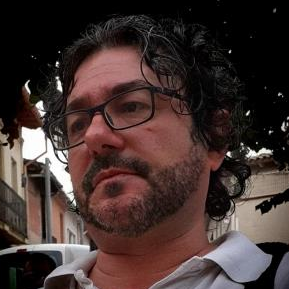Loop Quantum Cosmology and Quantum Black Holes
A special issue of Universe (ISSN 2218-1997).
Deadline for manuscript submissions: closed (30 November 2016) | Viewed by 16872
Special Issue Editor
Interests: quintessential inflation and gravitational particle production
Special Issues, Collections and Topics in MDPI journals
Special Issue Information
Dear Colleagues,
Loop Quantum Gravity (LQG) is one of the most exciting theories beyond General Relativity. Based in the discrete nature of the spacetime and mixing quantum effects with gravity, it could provide us some signatures of our Universe at very high energies. As a particular case, holonomy corrected Loop Quantum Cosmology (LQC) leads to a simple Big Bounce that replaces the classical Big Bang and/or Big Rip singularity. Moreover, the matter bounce scenario in LQC (where at very early times the Universe starts in a quasi matter domination in the contracting phase and evolves through this phase to the Big Bounce, and after bouncing it enters into the expanding regime where it matches with the standard hot Friedmann model), is the most promising alternative to the inflationary paradigm.
Another important issue, for which interest has increased in recent years, is the study within in LQG of quantum black holes. Specifically, the quantization of spherical symmetric vacuum spacetimes and the black hole entropy in the context of LQG, seem to lead to new and suprising results without a classical analogous. For instance, black hole collapse could reverse turning into expansion in analogy with the bouncing Universe in LQC, or the core of a spherically symmetric black hole might be a region of high curvature rather than a singularity.
Finally, and extension of LQG to other theories, such as modified f(R) or teleparallel gravity, could yield new cosmologies in which bouncing backgrounds could be used to depict our Universe.
Prof. Dr. Jaume Haro
Guest Editor
Manuscript Submission Information
Manuscripts should be submitted online at www.mdpi.com by registering and logging in to this website. Once you are registered, click here to go to the submission form. Manuscripts can be submitted until the deadline. All submissions that pass pre-check are peer-reviewed. Accepted papers will be published continuously in the journal (as soon as accepted) and will be listed together on the special issue website. Research articles, review articles as well as short communications are invited. For planned papers, a title and short abstract (about 100 words) can be sent to the Editorial Office for announcement on this website.
Submitted manuscripts should not have been published previously, nor be under consideration for publication elsewhere (except conference proceedings papers). All manuscripts are thoroughly refereed through a single-blind peer-review process. A guide for authors and other relevant information for submission of manuscripts is available on the Instructions for Authors page. Universe is an international peer-reviewed open access monthly journal published by MDPI.
Please visit the Instructions for Authors page before submitting a manuscript. Submitted papers should be well formatted and use good English. Authors may use MDPI's English editing service prior to publication or during author revisions.





